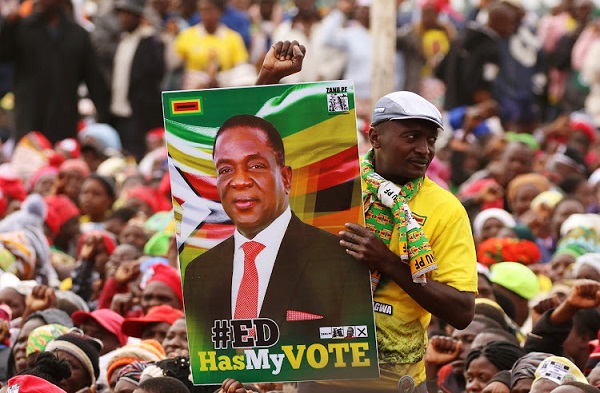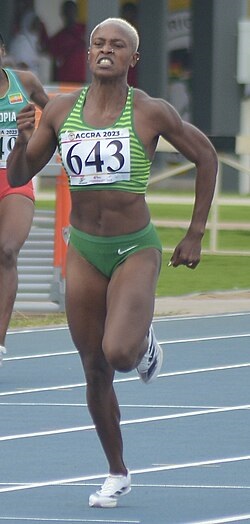by SAVIOUS KWINIKA
JOHANNESBURG – SOME liberation movements in the Southern African Development Community (SADC) regional bloc are meeting in South Africa during a critical juncture in their history.
This as some battle infighting, a majority struggle to deliver services to a disgruntled populace and all face a loosening grip on power after decades of dominance and relevance.
These liberators are enduring testing times and their future is uncertain in the world’s youngest continent, where the youth now dominate the voting public and are rarely influenced to vote for a party based on its liberation credentials.
The African National Congress (ANC), itself having lost its majority at the polls last year, is hosting the movements in Johannesburg.
Fikile Mbalula, ANC Secretary General, confirmed the preparations for the Liberation Movements Summit 2025 from Thursday to Saturday.
He said the summit will unite the political parties under the liberation movements under the theme, “Defending the Liberation Gains, Advancing Integrated Socio-Economic Development, Strengthening Solidarity for a Better Africa.”
The parties confirmed for the event indicate however this would be a SADC affair, not a continental one.
Besides the ANC, the movements confirmed are Chama Cha Mapinduzi (or CCM, of Tanzania), Front for the Liberation of Mozambique (FRELIMO), Popular Movement for the Liberation of Angola (MPLA), South West Africa People’s Organisation (SWAPO, of Namibia) and Zimbabwe African National Union-Patriotic Front (ZANU-PF) are to be represented.
ANC, Africa’s oldest liberation party, founded in 1912, is enduring its lowest point since it came to power in 1994 under the world-revered Nelson Mandela, now late.
After a series of years-long corruption scandals and factionalism it suffered a heavy blow in the 2024 election when it lost its majority.
After its dominance tumbled, it entered into a forced coalition government with its main rival, the Democratic Alliance (DA), a move some South Africans viewed as a betrayal of the fight against white minority rule, which critics say DA is pushing.
Frustrations are running high and xenophobic sentiments are on the rise as South Africa’s government struggles to provide jobs and services.
ZANU-PF, has been in power since 1980 and seen as the architect of Zimbabwe’s spectacular collapse over the decades. Millions of Zimbabweans have fled repression, economic malaise and collapse of social services and are strewn around the globe, including neighbouring countries where they are denounced as an economic and social burden.
The party has in the later days of self-rule allegedly resorted to vote rigging, abduction, jailing and murder of opposition and critics to maintain its rule.
In 2008, ZANU-PF lost its parliamentary majority for the first time since independence. However, then president, Robert Mugabe (now deceased) would latter form a unity government with the Movement for Democratic Change (MDC) formations.
ZANU-PF regrouped and won its majority back at the next election in 2013, thanks to a weakened, infiltrated opposition.
It has won successive elections later but all have been marred by vote rigging claims.
The detest of ZANU-PF has spilled to neighbouring countries where it is accused of “skilling” sister liberation movements to rig elections.
These allegations were widespread in Namibia and Mozambique last year when it was reported ZANU-PF had, in collusion with neighbouring ruling parties, “bussed” its supporters to vote.
Such rigging allegations triggered deadly-post election protests that left over 400 people dead in Mozambique.
State security have used live ammunition to quell protests.
It is claimed FRELIMO, in power since independence in 1975, lost the poll but the electoral body rigged the results in its favour. Electoral bodies in the region are loyalists of ruling parties.
They are mostly headed by ruling party stalwarts.
Daniel Chapo, announced the winner of the presidential poll in Mozambique, only gained some margin of legitimacy after signing a peace deal with some aggrieved opposition.
A similar situation was obtained in the last election in Angola when MPLA gave its worst electoral performance and was accused of rigging.
In Namibia, SWAPO’s fortunes are no better.
The government ran the most disorganised poll ever since the party assumed power in 1990, at independence.
A run-off was projected because of frustration among the public over economic ills but Netumbo Nandi-Ndaitwah prevailed with 57 percent, SWAPO’s worst electoral performance.
Main opponents disputed the electoral exercise as manipulated.
She is Namibia’s first female president and alongside Tanzania’s Samia Suluhu Hassan, the two female heads of state in the region.
The Tanganyika African National Union (TANU), founded in 1954 but known as CCM in 1977 after a merger with Zanzibar’s Afro-Shirazi Party (ASP).
It therefore is one of the longest ruling parties in Africa and its fortunes have taken a dip in recent elections.
Ahead of the next election in Tanzania, set for October, the CCM-led government of Hassan, is accused of arresting opposition leaders on allegedly trumped-up charges.
In April, the National Electoral Commission (NEC) disqualified the main opposition Party for Democracy and Progress (CHADEMA) or (Swahili: Chama cha Demokrasia na Maendeleo) after it had failed to sign a code of conduct document. CHADEMA demands reforms to level the playing field.
Polls are set for October but already, it seems a disputed outcome is brewing.
Critics say ruling parties fuel dictatorship among member countries of SADC. Because of their liberation bond, they rarely call each other to order over human rights violations, preferring a so-called policy of quiet diplomacy.
Analysts and commentators from the bloc expressed their views on the fortunes and relevance of the liberation movements.
Maria Jacob believes they have “outlived their utility and are at a crossroads.”
“The youth has a waning emotional connection to the liberation narrative. Born-frees view liberation movements as relics,” Jacob said.
Another critic, requesting anonymity, said the liberation movements had not done anything to uplift their citizens.
“They are cadres looting state resources. Zimbabwe is dead. Mozambique is chaotic. South Africa cadres are looting state resources.”
Thabo Molefe said the meeting was “a last kick of dying liberation movements.”
“At this point in time, revolutionary movements are useless and backwards. They don’t want to adjust from being revolutionary to being a good government,” he criticised.
– CAJ News




